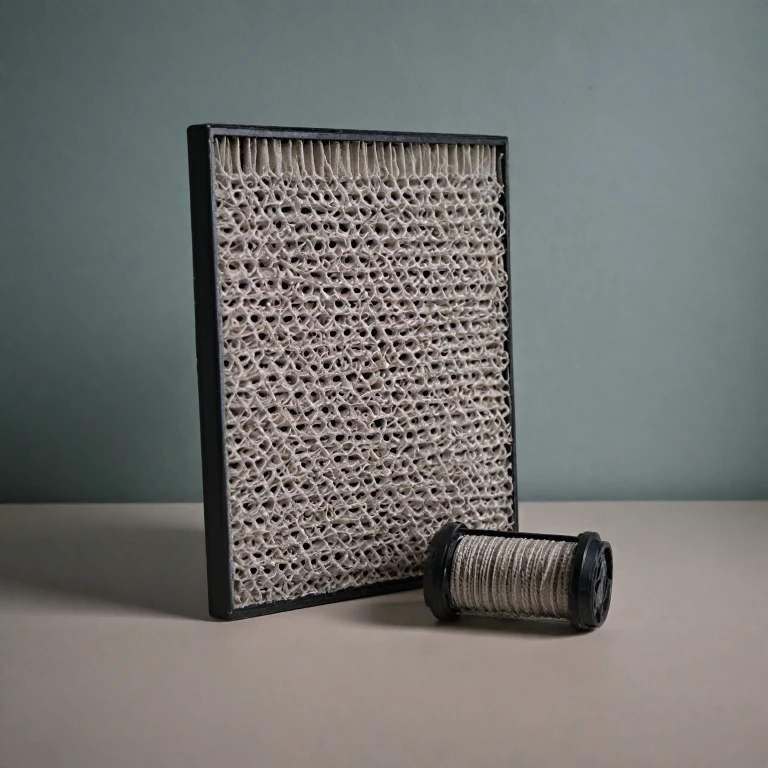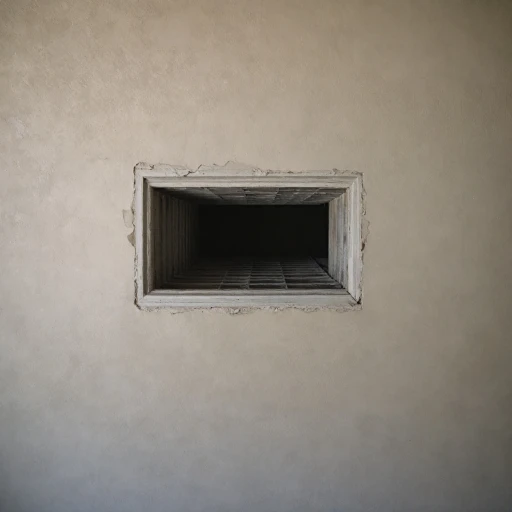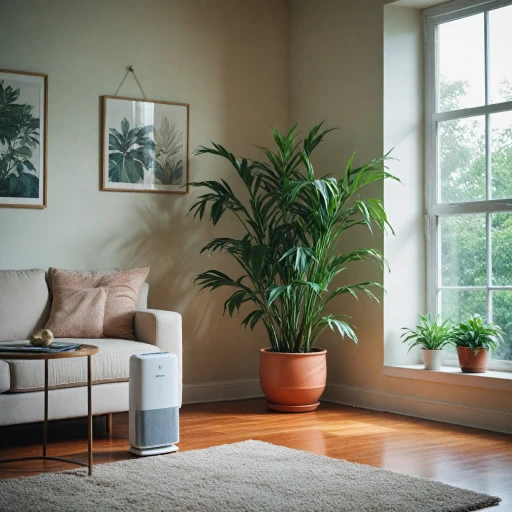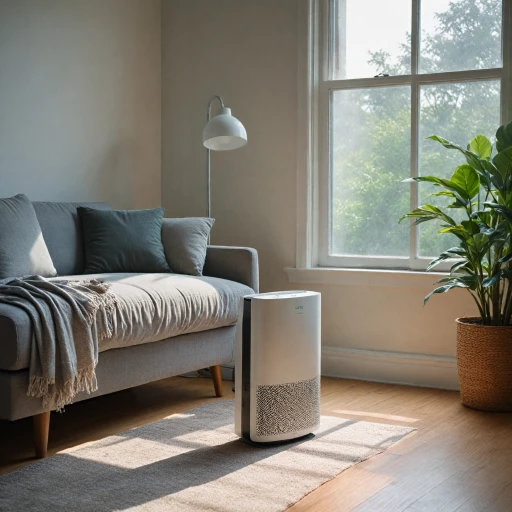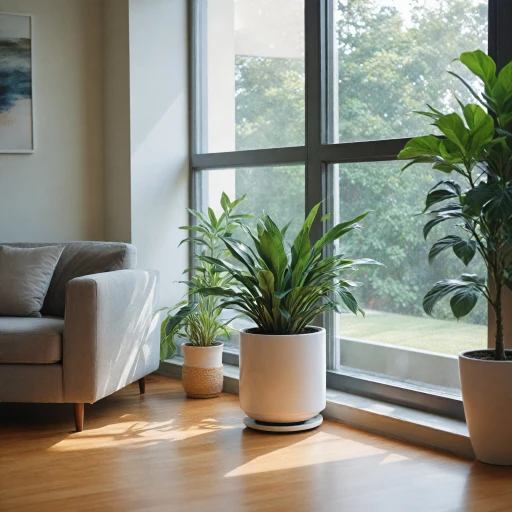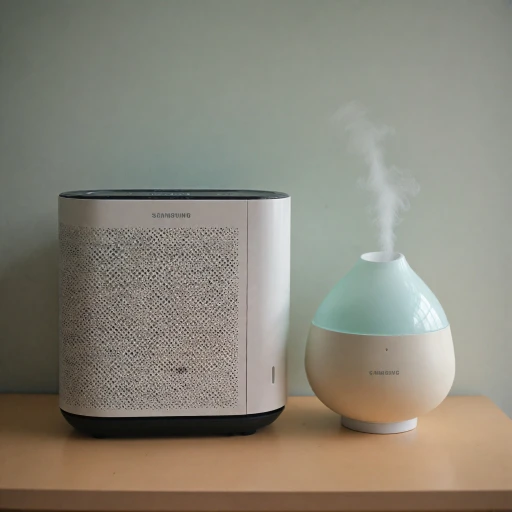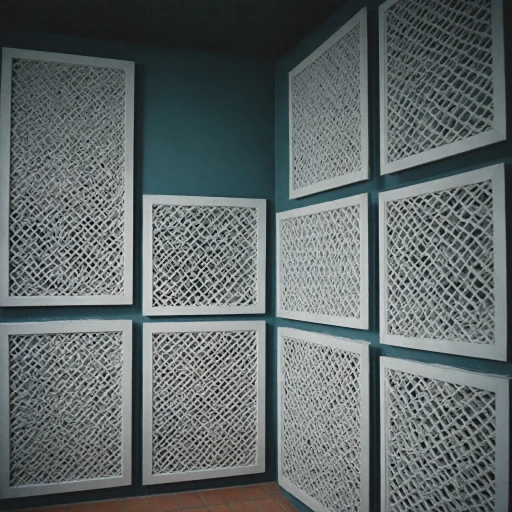Understanding HEPA Filters
What Makes HEPA Filters Stand Out?
HEPA filters, or High Efficiency Particulate Air filters, have set the standard for air filtration by capturing minuscule particles with remarkable efficiency. They are a vital component of any quality air purifier system and are known for their ability to significantly improve indoor air quality. Designed to trap up to 99.97% of particles as small as 0.3 microns, these filters play a crucial role in reducing air pollution inside homes and cleanrooms.
Unlike standard air filters, HEPA filters are engineered to remove dust, pollen, mold, bacteria, and other indoor allergens, making them a popular choice in both commercial HVAC systems and residential air purifiers. The filter's efficiency in dealing with such minute particles is what distinguishes it from other types available on the market.
While HEPA filters are known for their exceptional filtering capabilities, their effectiveness diminishes over time. Proper replacement of HEPA filters is essential to maintain optimal air quality. As the filter becomes saturated with particles, its ability to purify the air decreases, which could lead to a rise in indoor dust and allergens.
Understanding how these high-performance filters work and recognizing the signs when they need replacing can contribute significantly to maintaining clean air in your environment. Following through with regular filter replacement ensures your air purifier continues to provide the benefits you rely on for health and comfort.
Recognizing Signs of a Worn-Out HEPA Filter
Indicators That Your HEPA Filter May Be Failing
A HEPA filter plays a crucial role in maintaining clean indoor air. However, when it starts to wear out, its ability to filter out particles diminishes. Noticing the signs early can save you from decreased air quality.- Increase in Dust Accumulation: When you begin to see more dust and allergens on surfaces, it could be a sign that the filter needs replacing. Your HEPA filter may not be capturing air pollutants effectively, leading to increased dust.
- Unpleasant Odor: An unusual smell from your air purifier is often a clue that the filter is clogged or needs a replacement. The accumulation of pollutants can contribute to musty odors.
- Reduced Airflow: Your HVAC system or purifier may work harder to circulate clean air. If airflow feels weak, a likely cause is a blocked or saturated HEPA filter.
- Increased Allergy Symptoms: If you're experiencing more frequent allergy symptoms, such as sneezing or watery eyes, it might indicate that the air purifier is not operating optimally. Dust allergens are not being captured efficiently.
- Noisy Operation: A sudden increase in the noise level of your air purifier may suggest that the filter is obstructed. This can occur when the system strains to pull air through a clogged filter.
Frequency of Replacement
How Often Should You Change the Filter?
Understanding when to replace your HEPA filter is crucial for maintaining optimal air quality. Over time, HEPA filters capture a large amount of particles, dust, and allergens, which can lead to clogging. The frequency of replacement depends on several factors, including usage and environment.
- Usage of the Air Purifier: If you use your air purifier continuously, the HEPA filter will likely need to be replaced more frequently than if it's used sporadically.
- Environmental Factors: Locations with high levels of air pollution or dust may require more frequent filter replacements.
- Air Purifier Model: Some air purifiers have built-in indicators that will alert you when it's time to replace the HEPA filter.
Generally, manufacturers recommend replacing HEPA filters every 6 to 12 months, but this can vary. To ensure you are replacing the HEPA filter at the appropriate time, refer to the specific guidelines provided by the manufacturer of your air purifier. Keeping an eye out for signs of a worn-out filter can also help you determine the appropriate replacement schedule.
To learn more about ensuring your indoor air remains clean and healthy, consider exploring various innovative options such as wall-mounted air purifiers to enhance your living environment.
Impact of a Clogged HEPA Filter
Consequences of a Clogged HEPA Filter
Using a HEPA filter that is clogged can lead to a host of issues affecting both the air quality in your home and the efficiency of your air purifier or HVAC system. Let's dive into why maintaining your HEPA filter is crucial.- Reduction in Air Quality
- Increased Energy Consumption
- Shortened Equipment Lifespan
- Ineffective Air Cleaning
- Increased Dust and Allergens
How to Replace a HEPA Filter
Steps to Efficiently Replace HEPA Filters
Replacing your HEPA filter might seem like a daunting task, but it’s a necessary step to maintain the air quality in your home and ensure the efficiency of your air purifier. To achieve clean air and capture harmful particles effectively, follow these simple steps for filter replacement.- Power Off and Unplug: Before you begin, always ensure that your air purifier is turned off and unplugged from the power outlet. Safety is a priority.
- Access the Filter Compartment: Most air purifiers have a compartment at the back or bottom housing the filters. Refer to your device's manual for specifics on opening and removing the cover.
- Remove the Old HEPA Filter: Carefully take out the worn-out filter. You might notice signs of dust and debris accumulation, confirming the need for its replacement.
- Insert the New Filter: Place the new HEPA filter into the compartment, ensuring that it fits snugly in the designated slot. Double-check that it is aligned correctly.
- Secure the Cover: Once the new filter is in place, reattach the cover securely to maintain the seal. This helps in optimizing the efficiency of the purifier.
- Restart the System: Plug the air purifier back in and turn it on. Listen for any unusual sounds to confirm correct installation.
Tips for Prolonging HEPA Filter Life
Maximizing Your HEPA Filter's Lifespan
Taking proactive steps can extend the lifespan of your HEPA filter, ensuring it continues to provide high-quality air purification for your indoor spaces. Here are some practical tips:- Use a Pre-Filter: Many modern air purifiers come equipped with pre-filters. These capture larger dust particles and allergens before they reach the HEPA filter, reducing the load and prolonging the life of your main filter.
- Regularly Check and Maintain Filters: Make it a routine to inspect your air filters and other components within your purifier system. Keeping the air intake clean prevents blockage and maintains efficient airflow.
- Vacuum Clean the Filters: While HEPA filters themselves cannot be washed, gently vacuuming them can remove surface dust and particles that may have settled.
- Opt for Quality Purifiers and Filters: Investing in high-quality air purifiers and replacement filters can provide better longevity and performance. Cheaper alternatives might require more frequent replacements.
- Consider your Environment: Monitor the air quality and pollution levels in your area, adjusting your HEPA filter replacement schedule accordingly. Homes with pets, smokers, or located in polluted areas may require more frequent check-ups.
- Optimize Use of HVAC Systems: Efficiently utilizing your HVAC system can stabilize indoor air quality, thereby reducing strain on your air purifiers and HEPA filters. Regular HVAC system maintenance is also key.
